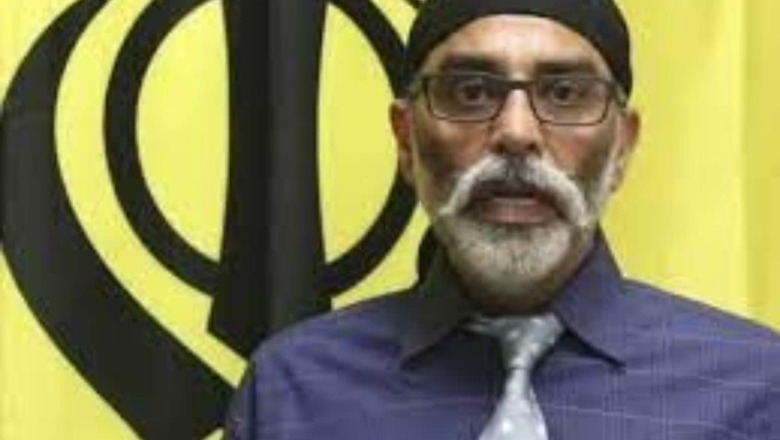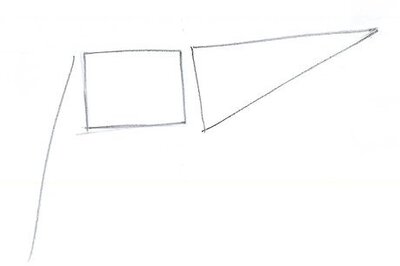
views
This seems to be the season for high drama. The US Justice Department’s release of an indictment against an Indian national on the charge of being hired to murder a US citizen in New York City has caused waves in the media.
The whole thing reads rather like a script from a cheap spy thriller, with the main actor – the alleged Indian agent – overplaying his part. It is serious, not so much of itself, but because of the publicity that has surrounded the whole bizarre series of incidents that began with the Canadian prime minister’s wild accusations.
The US makes the grade
The process that the US has followed is as different from Canada as chalk from cheese. The US very properly said nothing publicly, even after Prime Minister Justin Trudeau made his dramatic ‘credible allegations’ statement after returning from a rather humiliating trip to Delhi, where he was cold shouldered for his complete lack of action against Khalistani activity.
The investigation began in May, and was not allowed to upset the visit of Prime Minister Narendra Modi to Washington (June 21 to 23), with the bureaucracy only reacting to repeated public allegations from Canada and the UK among others, that the US was taking action. It must be noted that this indictment, as the Justice Department clearly says, consists only of the allegations until proven, and the Indian side is equally saying it will follow up with investigations.
The strange spy story
The details in the indictment itself are rather bizarre to say the least. First, the alleged Indian agent, referred to as CC-1, is apparently a government employee, from a paramilitary force (not an officer), and is Delhi based. And here’s another thing. Either he, as a government servant, had no idea that the prime minister was travelling to the US the next month, or he fully intended to sabotage the visit.
Consider that the plot started in early May, with him harrying his ‘source’ in the US, the now arrested Nikhil Gupta, a narcotics and weapons smuggler, to carry through the assassination of Gurpatwant Singh Pannun by the end of May.
True, he did say ‘calm everything’ for a while in early June (when he seems to have learned of the PM’s visit) but was still willing to go ahead on June 11, when the surveillance of the target was done. In fact, on June 20, he said that it is a “priority”, ie, a day before the PM arrived.
Other evidence of his ham-handedness? He gives Gupta a number that is linked directly to his email – which no self-respecting agent will ever do – he even sends him a video of Hardeep Singh Nijjar slumped dead in his car – within an alleged ‘half an hour’ of the assassination. He even boasts that this was done by another of his contacts and worse, says he has “so many targets”.
At this point CC-1 seems to be acting more like a car salesman than anything else. Worse follows. During a conversation with Gupta, he switches on his camera and shows a bunch of other ‘suits’ in the room, all of whom are apparently relying on this highly unreliable criminal of the underworld.
If this is what Indian intel is about, it may as well pack up and save the taxpayers money. The cherry on top is that a case against Gupta is dropped in India, as a lure. And the location? Gujarat. It’s grossly overplayed. The sum of it is, that first, no self-respecting intel agent will act in this way. It’s incredible. Second, CC1 is leaving such a broad trail, that it looks like he’s literally begging to be found out.
Intel gets a RAW deal
Now comes the second half of the story. It is already known that the Canadian government publicly called out the Research and Analysis Wing (R&AW) officer in Ottawa for his alleged role in Nijjar’s murder on June 18. Thereafter, two senior R&AW officers have reportedly been asked to leave Washington and San Francisco, and denied permission to send a new station chief to Washington after the earlier office holder finished his term.
As pointed out, R&AW chief Sumant Kumar Goel had earlier got after the Khalistani moles in London, who together with various other dissidents from countries including Pakistan, have long been part of London’s stock in trade in the spy business. But it seems the agency has been quite active in recent times.
There’s the detention of decorated naval officers in Qatar for the incredible charge of spying for Israel. Then are allegations of at least 13 terrorists being killed in Pakistan or on its borders, which has been kept carefully under wraps by their agencies. Some of these were gangsters like Sukhdool Singh, while Ripudaman Singh Malik was the classic ‘the one that got away’ in terms of being the accused in the worst recorded terrorist attack on aviation, the Kanishka bombing.
The terrorists got what they deserved, and probably less. But that’s not the point. Intel officers posted in countries are there to collect intel and liaise with their counterparts for the good of both. That applies only in friendly countries.
In places like China or Pakistan, an intel officer of any country goes in fear of his life. There is certainly an unwritten code that you do not bump off people you don’t like on the soil of friendly countries. But there also seems to be another unwritten code. That is, that the US and the UK in particular, are free to provide ‘safe haven’ to what they call dissidents and others call terrorists on their soil.
For instance, the UK has (12 individuals) against whom Interpol red corner notices have been issued, not to mention a great many others, whom many countries quite justifiably regard as terrorists, or even criminals. No, not just Nirav Modi or Vijay Mallya, but a number of lesser known ones. In the process, as The Guardian notes, the UK has some 5,000 criminal gangs and London is the money laundering capital of Europe.
Sheltering criminals and terrorists has its costs in real terms, regardless of what the spooks may think. In the US, the threats that Pannun has made are serious. If such threats were made against President Joe Biden in India, the US would demand action in 48 hours or less.
In sum, ‘unwritten codes’ have to be harmonised – at least among friendly countries – so that hardily built relationships are not endangered. Alongside also, India needs to get its creaky judicial system in order, supported by sharp investigative and forensics capabilities so that cases against criminals are made water tight. Police and intel officers are hugely capable, but they deserve the best.
(The writer is a Distinguished Fellow at the Institute of Peace and Conflict Studies, New Delhi. She tweets @kartha_tara. Views expressed in the above piece are personal and solely that of the author. They do not necessarily reflect News18’s views)














Comments
0 comment